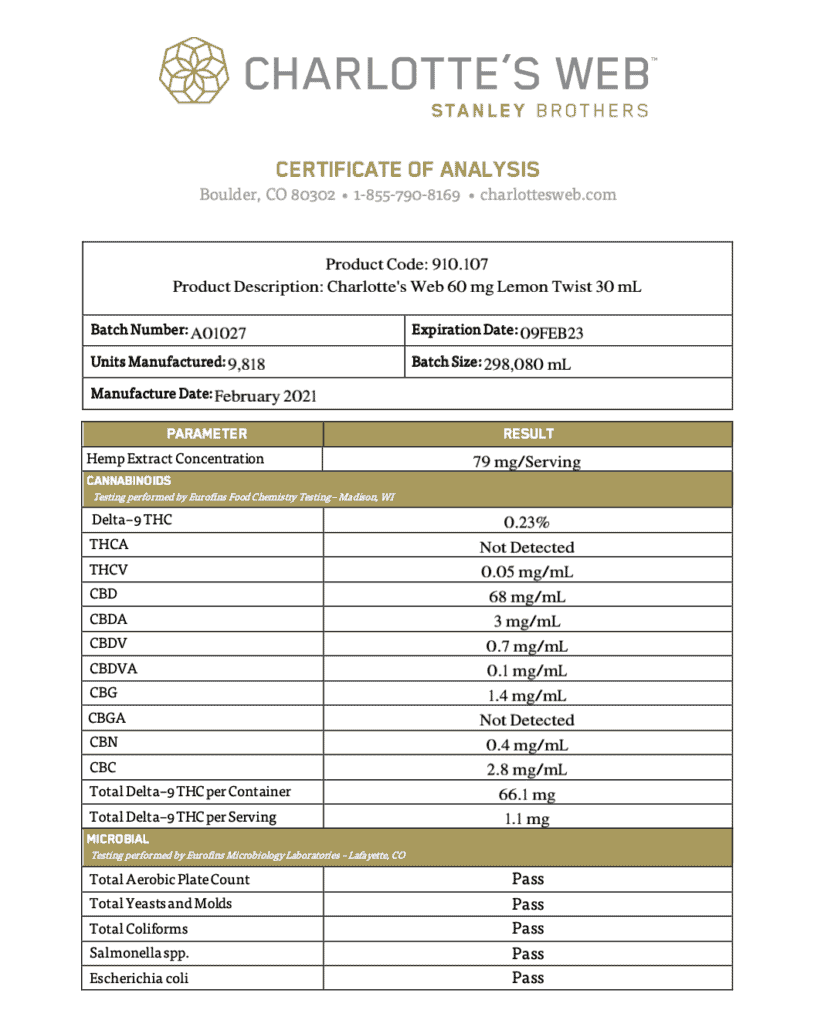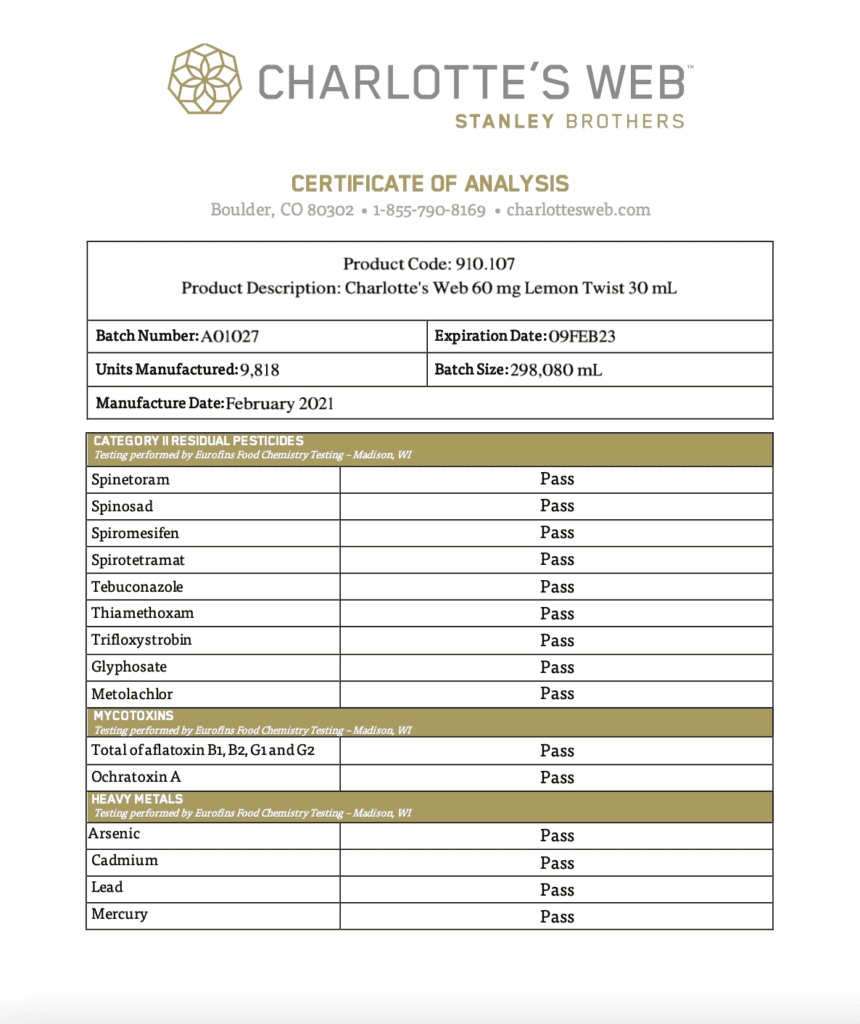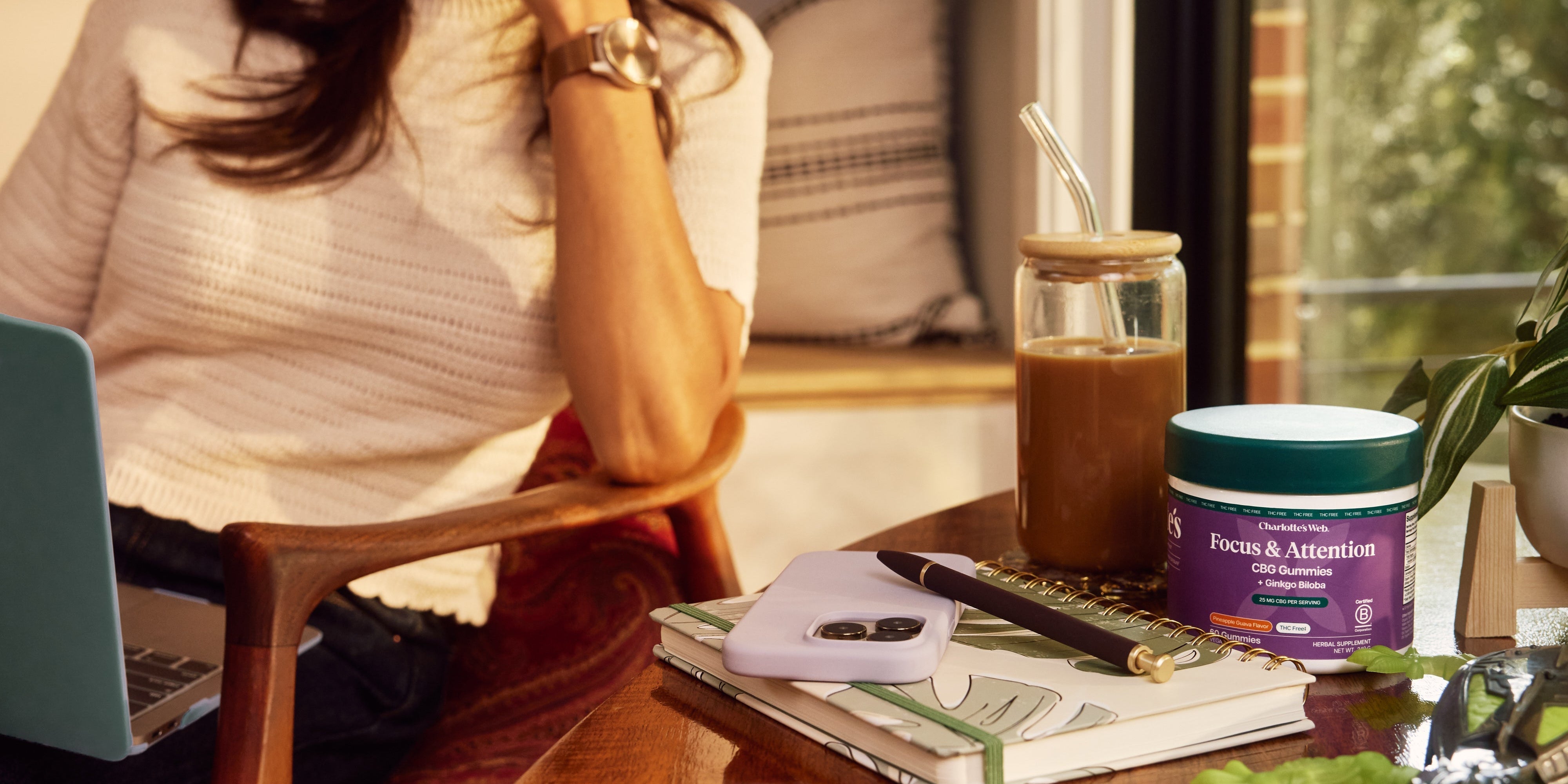How to read a CBD Certificate of Analysis


Medically reviewed by Dr. Jen Palmer, ND - Naturopathic Doctor
Over the last several years of this new and fast-growing industry, you might have heard language around quality standards as it relates to the CBD industry. CNN's Dr. Sunjay Gupta and many other medical professionals have explored the CBD industry and shared some crucial information, including how important it is that consumers educate themselves about how to identify quality CBD.
This has been a core tenet of ours since we started our company many years ago—to do what is right for our family of customers. That means continually ensuring we’re best-in-class and establishing standards more stringent than the industry requires of us.
Charlotte’s Web was one of the first companies recognized by this certification system, demonstrating our commitment to providing customers with safe and accurately labeled hemp-derived products.
Dr. Gupta and the experts he interviewed from Consumer Reports and academic institutions suggested requesting a Certificate of Analysis (CoA) from a third-party source for all CBD products you intend to consume. We agree! These tests are incredibly important because hemp is a remediation crop, meaning anything that touches the crop has the potential to appear in the final products produced from it. Consider this: if harmful pesticides, herbicides, and fungicides are used in the vicinity of hemp cultivation (like glyphosate), your CBD oil could have residual chemicals in it.
Similarly, heavy metals in the soil can end up in CBD products if the soil they’re planted in isn’t clear of heavy metals. Our dedicated team of botanists, farmers, and chemists test the soil and water long before our plants are put in the ground.
Charlotte’s Web is the industry leader because we go far above standard industry practices, and that is reflected in our dedication to making quality products that deliver consistent results. We don’t use chemical pesticides or herbicides on our plants and manage our facilities in accordance with current good manufacturing practices (cGMP). We perform a full battery of tests, including microbiological contamination, heavy metals, potency, and residual solvents. This includes a 60+ panel of testing for pesticides and herbicides, including glyphosate.
For consumers, Charlotte’s Web offers a CoA for cannabinoid potency that supports our label information. Lastly, Charlotte’s Web does not use GMOs in any of its ingredients or extraction processes. All of our manufacturing processes and facilities are third-party verified by the NSF for compliance with current Good Manufacturing Practices (cGMP).
What’s In a Certificate of Analysis (CoA)?
When you open a CoA, you’re going to see a lot of information. Let’s start at the top:
Cannabinoids: These are the naturally occurring compounds found primarily in the flowers and leaves of the hemp plant and in hemp extracts that consumers are seeking today for their health and wellness benefits. As such, CBD is the star of the CoA. Know that a small amount of THC occurs naturally in hemp, but per the 2018 Farm Bill, hemp extracts must contain no more than 0.3% THC on a dry weight basis. Other cannabinoids, such as CBG, CBN, and CBC, are also in our products, and a CoA will tell you exactly how much of those are present as well.
Microbial: This test ensures that your products don’t have microbiological contamination such as salmonella, yeast, and molds.
Residual Solvents and Heavy Metals: Lead, methyl mercury, and arsenic are not listed on any ingredient panel for a reason—you don’t want to ingest them. But many hemp-derived CBD products don’t pass tests for these things because of the soil they were grown in. Consider this: hemp plants were used to help clean up the soil around Chernobyl. You wouldn’t want to consume a hemp extract from Chernobyl hemp as its job was to pull toxins out of the soil. On the other hand, our hemp is grown on certified organic U.S. family farms only after extensive soil and water source testing.
Pesticides: We understand that pesticides are a part of modern agriculture, but they aren’t a part of what you want to be consuming if you can avoid them. As we explained earlier, anything you spray on a hemp plant will show up in a hemp extract – from which CBD is extracted.


We understand that our CBD products are premium, but we stand behind every single bottle we sell because we’ve tested it to ensure it contains the amount of CBD you’re paying for. The third-party labs where our products are tested are all listed on the CoAs. We believe that our family of customers deserves that kind of transparency.
Please note that batch results are subject to change due to plant-by-plant variations. Sometimes, a CoA may appear to show a higher level of a particular compound than you might expect, such as THC. Fear not, for this is most likely just a measure of the compound’s presence in the entire 30- or 100-mL bottle, as opposed to an individual serving. Our products contain less than the legal limit of THC permitted (less than 0.3% THC) as outlined by the 2018 Hemp Farming Act. We hold ourselves to the highest standards and will never deliberately produce or sell you a product that runs counter to the rigorous guidelines we have in place.
If you would like to see the batch results for a product you purchased, visit our Certificate of Analysis page.

